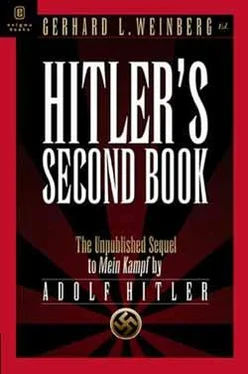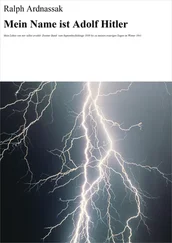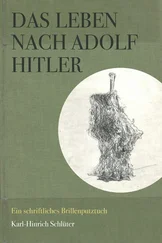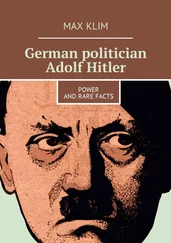all this leaves these champions of the national honour of our Folk cold. [note 15] Woe, however, if something like this were the case in the Southern Tyrol. For this has suddenly become a Holy Land for them. But the Fatherland itself, the Homeland, it can go to hell.
Certainly, on the Italian side, more than one unwise action has taken place in the Southern Tyrol, and the attempt to denationalise the German element systematically is just as impolitic as its result is questionable. But those who are in part guilty of all this and who, as a matter of fact, know nothing of a national honour of their Folk, have no right to protest against this. Instead, this right belongs only to those who up to now really fought for German interests and German honour. In Germany this was exclusively the National Socialist Movement.
The whole inner mendacity of the agitation against Italy becomes apparent if the actions of the Italians are compared with the actions that the French, Poles, Belgians, Czechs, Rumanians and Southern Slavs have perpetrated against the German element. That France has expelled more than a quarter million Germans altogether from Alsace-Lorraine, that is, more people than the Southern Tyrol numbers as inhabitants, means not a rap to them. And that the French today are trying to extirpate every trace of German nationality in Alsace-Lorraine does not prevent them from fraternising with France, even when continuous blows on the jaw are the answer from Paris. That the Belgians persecute the German element with a matchless fanaticism; that the Poles have massacred over 17000 Germans, in part under downright bestial attendant circumstances, gives them no cause for excitement; that they, finally, expelled tens of thousands from house and home, with hardly a shirt on their backs, and drove them across the border, are things that cannot make our bourgeois and Fatherland protest swindlers fly into a passion. Indeed, whoever wants to know the real disposition of this pack must only recall the way and manner in which the refugees were welcomed even then. Their hearts, at that time, bled as little as they do now when those tens of thousands of unfortunate expellees again found themselves on the soil of their dear Homeland, in part in veritable concentration camps, and were being shunted from place to place like Gypsies. In my mind’s eye I still see before me the time when the first Ruhr refugees came to Germany, and then were shunted from police administration to police administration as if they were hardened criminals. No, then the hearts of these representatives and defenders of the national element in the Southern Tyrol did not bleed. But if a single German in the Southern Tyrol itself is expelled by the Italians, or some other injustice is inflicted on him, they tremble with righteous resentment and indignation over this unexampled crime against culture and over this greatest barbarism that the world has ever seen. How they say then: Never before and nowhere else before has the German element been so oppressed with such terrible and tyrannical methods as in this country. Indeed, but only with one exception, that is, namely, Germany itself, through your own tyranny.
The Southern Tyrol, or better, the German element in the Southern Tyrol, must remain preserved for the German Folk, but in Germany itself, through their insane policy of non national dishonourableness, of general corruption, and of obsequiousness to the international financial lords, they murder more than double the people that the Southern Tyrol numbers as German inhabitants. They are silent about the 17000-22000 people driven to suicide yearly on average in recent years by their catastrophic policies, although this number, with children included, likewise amounts in ten years alone, to more than the Southern Tyrol numbers in German inhabitants. They foster emigration, and Herr Stresemann’s national bourgeoisie characterises the increase of the emigration quota as an enormous foreign policy success. And yet this means that every four years Germany loses more people than the Southern Tyrol numbers as inhabitants of German nationality. But in abortions and birth control, year for year, they murder almost double the number of people of German nationality in the Southern Tyrol all together. And this pack arrogates to itself the moral right to speak on behalf of the interests of the German element abroad.
Or this national official Germany wails over the denationalisation of our language in the Southern Tyrol, but in Germany itself they de Germanise the German names in Czechoslovakia, in Alsace-Lorraine, and so on, in all official ways and manners. Indeed, official travel guides are published in which even the German names of cities in Germany are Czechised for the sake of the Czechs. This is all in order. Only when the Italians changed the holy name Brenner into Brennero was this an occasion to demand the most fervent resistance. And it is a spectacle not to be missed when such a bourgeois patriot begins to blaze with indignation, when one knows well that it is all a comedy. To simulate national passion suits our passionless, putrefied bourgeoisie as exactly as when an old whore mimics love. It is all only an artificial sham, and at its worst this is proved most correctly if such an excitement has its homeland in Austria. The black-gold legitimistic element, to whom formerly the German element in the Tyrol was completely a matter of indifference, now joins in a holy national indignation.
Something of this kind electrifies all petty bourgeois associations, especially if they then hear that the Jews are also cooperating. This means that they themselves protest because they know that this time, exceptionally for once, they are permitted to shout their national feelings out loud — without being done in by the press Jews. On the contrary: it is after all fine for an upright national bourgeois man to appeal for a national struggle, and at the same time even be praised by Moses Israel Abrahamson. Indeed, even more. The Jewish gazettes scream along with them, and with this for the first time the real bourgeois national German unity front is established, from Krotoschin via Vienna up to Innsbruck, and our German Folk, so politically stupid, lets itself be taken in by this show exactly as once before German diplomacy and our German Folk let themselves be duped and misused by the Habsburgs.
Germany once before had let her foreign policy be determined exclusively by Austrian interests. The punishment for this was something terrible. Woe, if the young German nationalism lets its future policy be determined by the theatrical babblers of the putrid bourgeois elements, or indeed by the Marxist enemies of Germany. And woe if, at the same time, in complete misunderstanding of the real driving forces of the Austrian State in Vienna, it again receives its directives from there. It will be the task of the National Socialist Movement to prepare an end to this theatrical hue and cry, and to choose sober reason as the ruler of future German foreign policy.
To be sure, Italy also bears guilt for this whole development. I would view it as stupid and politically childish to rebuke the Italian State for the fact that it pushed its borders up to the Brenner on the occasion of the Austrian collapse. The motives that dominated it at that time were no more base than the motives which once determined bourgeois annexationist politicians, including Herr Stresemann and Herr Erzberger, to prop the German borders against the Belgian Meuse fortresses. At all times a responsible, thinking and acting government will make an effort to find strategically natural and secure frontiers. Surely, Italy did not annex the Southern Tyrol in order thus to come into possession of a couple of hundred thousand Germans, and surely the Italians would have preferred it if only Italians lived in this territory in place of these Germans. For, as a matter of fact, it was never strategic considerations primarily which induced them to place the borders over the Brenner. But no State would have acted differently in a similar situation. Hence it is aimless to criticise this shaping of the borders as such, since ultimately every State must determine its natural borders according to its own interests and not others. To the extent that the possession of the Brenner may serve military interests and strategic purposes, it is irrelevant whether or not 200000 Germans live within this strategically established and secured border as such, if the population of the country encompasses 42 million people, and a militarily effective adversary on this very border does not come in for consideration. It would have been wiser to have spared these 200000 Germans any compulsion, rather than to have forcibly tried to instil an outlook the result of which, according to experience, is generally without value. Also a Folkdom cannot be extirpated in twenty or thirty years, regardless of the methods employed, and whether one wants or does not want this. On the Italian side, one can answer with a certain appearance of right that this was not intended at first, and that it developed necessarily by itself as a consequence of the provocative attempts at a continuous interference in domestic Italian affairs on the part of Austrian and German external forces, and of the repercussions evoked therefrom on the Southern Tyroleans themselves. This is correct, for, as a matter of fact, the Italians at first welcomed the German element in the Southern Tyrol very honestly and loyally. But as soon as Fascism arose in Italy, the agitation against Italy in Germany and Austria began on grounds of principle, and now led to an increasing heightening of mutual irritability which in the Southern Tyrol finally had to lead to consequences we see today. Most unfortunate in this was the influence of the Andreas Hofer Association which, instead of strongly recommending sagacity to the Germans in the Southern Tyrol, and making it clear to them that their mission was to build a bridge between Germany and Italy, aroused hopes in the Southern Tyroleans beyond any possibility of realisation, but which, however, were bound to lead to incitements and thereby to rash steps. It is primarily the fault of this Association if conditions were carried to an extreme. Whoever like myself had many opportunities to know important members of this Association personally as well must be amazed over the irresponsibility with which an Association with so little real active strength could do so much damage. For when I see the different leading figures in my mind’s eye, and think of one of them in particular who had his office in the München police administration, then I grow angry at the thought that men who would never bring their own blood and skins to the market occasioned a development which in its ultimate consequence must end with a bloody conflict.
Читать дальше












